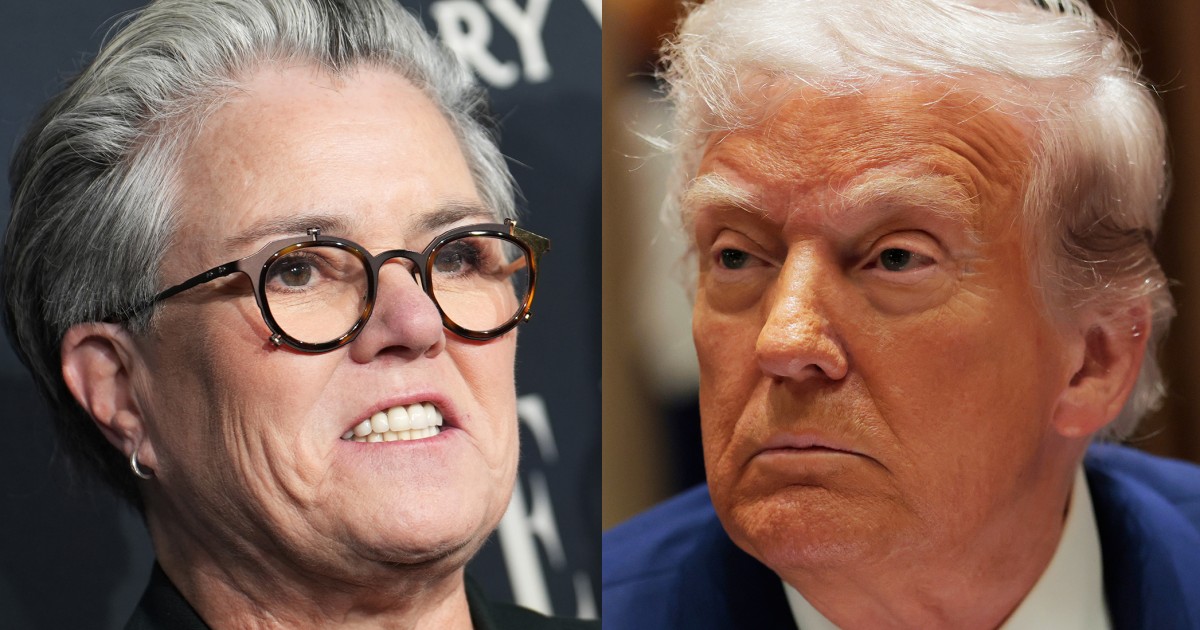Trump's Citizenship Threat Against Rosie O'Donnell Sparks Outrage and Legal Debate
Trump's threats to revoke Rosie O'Donnell's citizenship have intensified their feud, with O'Donnell emphasizing her resilience and health concerns following the 2020 election.
Overview
- Trump's consideration to revoke Rosie O'Donnell's citizenship has reignited public outrage and legal discussions about presidential power.
- O'Donnell, a long-time critic of Trump, believes her background reminds him of those who have opposed him.
- She moved to Ireland after the 2020 election to protect her health amid threats regarding her citizenship.
- Legal experts assert that the U.S. Constitution prohibits revoking citizenship from native-born citizens, despite Trump's claims.
- The ongoing feud has escalated with personal insults exchanged, highlighting the contentious relationship between Trump and his critics.
Report issue

Read both sides in 5 minutes each day
Analysis
Center-leaning sources frame Trump's threat to revoke Rosie O'Donnell's citizenship as a politically charged act, highlighting his contentious relationship with critics. They emphasize the legal impossibility of such actions while reflecting a critical stance towards Trump's behavior, suggesting a broader concern about his approach to dissent and citizenship rights.
Articles (22)
Center (6)
FAQ
No, legal experts agree that the U.S. Constitution prohibits revoking citizenship from native-born citizens. Citizenship can only be revoked under very limited circumstances, primarily for naturalized citizens through a judicial denaturalization process, which does not apply to native-born individuals.
Citizenship revocation, or denaturalization, can occur only in federal court for naturalized citizens if it is proven that citizenship was illegally procured, material facts were concealed during naturalization, the person affiliated with subversive groups, was discharged dishonorably from military service after naturalization, or if citizenship was acquired through a parent or spouse who has since been denaturalized.
Trump's threats have sparked public outrage and intensified legal debates over presidential powers regarding citizenship. Experts have emphasized the constitutional protections of citizenship, and the feud between Trump and O'Donnell has highlighted tensions around such threats, especially as O'Donnell has taken steps to protect her health and residency abroad.
Rosie O'Donnell moved to Ireland after the 2020 election to protect her health amid concerns and threats related to her U.S. citizenship status in the context of her public feud with Trump.
The U.S. Constitution’s Fourteenth Amendment grants citizenship to all persons born or naturalized in the United States and subject to its jurisdiction. This birthright citizenship is a longstanding policy affirmed by Supreme Court precedent, which Trump’s attempts to alter through executive orders have been blocked by federal courts as unconstitutional.
History
- 4M

 11 articles
11 articles
- 4M

 4 articles
4 articles
- 4M

 4 articles
4 articles



















